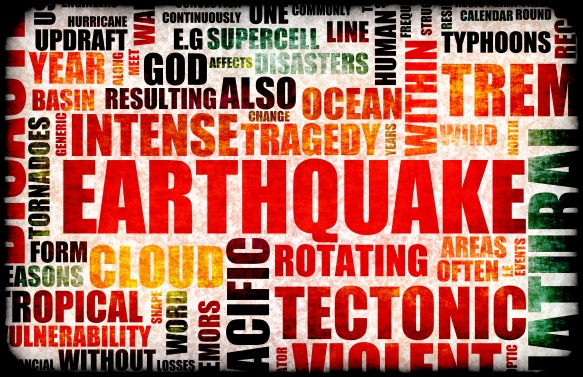Chapter 7 – Israel sees the problem but not the sin
Intro note: There is much history in and around the people to whom Hosea is prophesying. The Northern Kingdom had just made war with the Southern Kingdom. We will address these influencers during our review of this chapter in Hosea. Hosea is in the northern kingdom and Amos is also a prophet to the northern kingdom.
This first king of the divided kingdom of Israel to the north was from the Tribe of Ephraim. It should also be noted that at times the Tribe of Ephraim may have had its own supreme ruler (king) separate from the remaining nine Tribes of the Northern Kingdom of Israel. In Hosea 5:5 both Israel (10 northern tribes) and Ephraim are mentioned in the same sentence. There is no practical reason to conclude this does not infer two entities within the same kingdom. The city of Samaria is within the tribal territory of Ephraim. At time the Bible calls these ten tribes Israel, Ephraim or Kingdom of Samaria. All three are one and the same peoples.

For the serious Bible student and one who grasps for understanding of the Hebrew language implication in words, in Hosea 5:5 there is a vav (6th letter in the Hebrew alphabet/Aleph-bet) before the name Israel and the name Ephraim. Many other conclusions can be drawn or dramatized about this prefix (vav) in Hosea 5:5. The letter vav has a hooked form; often used to refer to the “hooks” used in the Temple to hold up the separation curtain. Here is the connection:
Numbers 25 records the history of Phineas (grandson of Aaron), death in the camp of the wandering Israelites, a Midianite woman, and an unnamed man of Israel. The Israelites, were still under the leadership of Moses, had fornicated with Midianite women while camped in Shittum; land of Midianites. One Israelite man was caught in the act when Phineas took matters into his own hands to stop the incest and punishment upon the twelve tribes in the Wilderness. Specifically the unnamed man of Israel as written in Numbers 25 and the Midianite woman were in his tent. Phineas grabbed a “HOOKED SPEAR” and impaled them together. Two individuals, of their own accord, VAV’d together; i.e. hooked.
This may mean in Hosea 5:5 that Israel and Ephraim at times were hooked (vav) together but two functional entities…both sinning by bowing to idols; joined together by agreement.
PS; It is tempting to go into greater educational and knowledge about the Hebrew letter VAV but this is not the point of this article.
Hosea 7:1…”the iniquity of Ephraim and the wickedness of Samaria…” Per the comments above and as to the distinction between Israel and Ephraim here in verse 1, the name Ephraim sometimes infers all of the northern Kingdom of Israel. Why? Samaria is mentioned in the same verse (7:1) as a separate entity. The capital of the northern kingdom is located in Samaria. That is the territory assigned to the Tribe of Ephraim by Joshua.
In chapter 7 we find that Hosea had now lived through times of four assassinated kings of the northern tribes (Israel), an invasion of Judah by the northern tribes, 200,000 from Judah being taken captive, stripped (customary for captured peoples), then being released due to the pleas of a few influential leaders in the northern kingdom. He witnessed Israel seeking the help of Egypt, Syria (Damascus) and Assyria that quickly resulted in the downfall and scattering of the population of Israel. God wanted them to seek HIM, not reliance upon mankind.
Tiglath-Pileser of Assyria, from whom military help had been requested by Israel, had already campaigned against Damascus, Syria. The writing on the proverbial wall should have been obvious to both Israel and Judah. They didn’t see it as they already shared in Baal worship. The Syrians (Damascus) agreed militarily to help invade Judah. Assyria was already at the doors of Damascus. What consequently happened is Judah and Syria became tributary to Assyria. Within 10 years Israel is a conquered and dispersed people.
Hosea 7:2 has New Testament implications. God through Hosea states that the people and leadership (particularly) had it in their heart that God forgets sin even if not forgiven by confessing it to HIM. Israel’s dirty laundry list was growing by leaps, no, heaps. One big sin was the fact they went to Syria for help instead of God. What may be the New Testament implications? For one, the so-called modern day Christian and church leadership are identifying right as being wrong, and wrong as being right. The reader can fill in these right and wrong blanks. This is identified as political, but not God correctness; seeking mankind agreements instead of seeking God.
Unconfessed sins will be judged at the Bema Seat Judgement. Many evangelicals want to slip past this but it does not pass inspection of the commandment to confess our sins…daily.

Has the term “half-baked” ever crossed minds? This passage is from where birth was given to that statement via the bible. From Hosea 7:4–7 is about Israel acting like it is half-baked bread; cooked too long and burned on one side while remaining unbaked on the other side. Customarily back during this time of Hosea, bakers would turn the loaf while cooking to assure it to be thoroughly cooked. Baking was dome at ground level. Hosea is pointing out that Israel’s worship of God was more show than actuality. They would over do their supposed allegiance to the God of Abraham via sacrifices and customary religious ceremonies but the only reality was their attendance, not their commitment. They were half-baked followers of ONLY God almighty.
Hos 7:10 “And the pride of Israel testifieth to his face: and they do not return to the LORD their God, nor seek him for all this.” [KJV] Simply put, Israel demonstrated a form of religiousness but did not seek the guidance of their one and only true God. The word “all” (kole) in the Hebrew means…nothing excluded. This definition is the same as the word pas in Greek…nothing excluded. We read in the King James “the pride of Israel.” The translated Hebrew word for pride is gaw-ohn’. It means arrogance, pomp or majesty. Not to be read or misinterpreted as pride in their God Jehovah, but pride (gaw-ohn’) in themselves.
Verse 11 makes or supports an earlier comment in this article. We read that “Ephraim” (Israel) called out for their help to come from Egypt and Assyria. They did not seek God’s help. In short this was to God like his people saying “in your face, God.” Verse 14 backs this up. It reads in the ESV: “They did not cry out to me.” Instead they cried out to Egypt, Damascus, then fatally to Assyria.
Looking back to amplify verse 9, Hosea points out that the strength of their youthful days under God has depleted…strangers (other gods) devour their strength and GRAY HAIRS begin to show. Like so many in denial of their relationship with God imaging it to be genuine but a false relationship. Israel’s relationship to God had aged, grown gray, became a religion. Today we color our hair only to present a deception of not showing one’s age. This is similar to what Israel had done…deceptive as followers of God.
In concluding chapter 7 we get another parallel to modern day so-called Christians; those who believe in a god but do not believe and trust IN God. Hosea compares it to a bent bow; i.e. a less than straight arrow. The arrow is put to the bow, shot, but no one can tell where it will go. What one does know is that it destined to go off course right out of the bow.

They change directions but do not come back to me (ERV). Someone confesses to get it off his or her chest then walks away determined to change but does not seek God, only change. (C.f. Jeremiah 7:19-26; Hebrews 6:4-6)
Rev. Dr. Jstark – 2020






